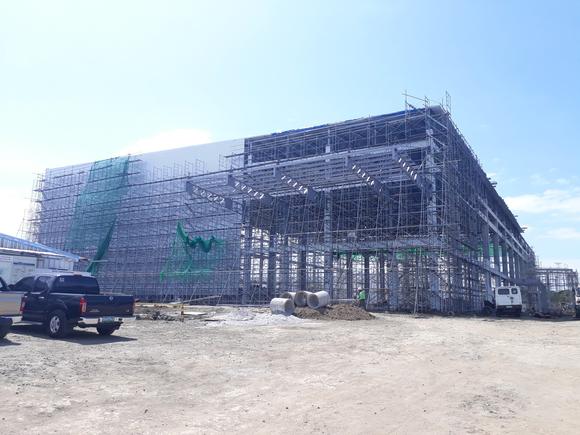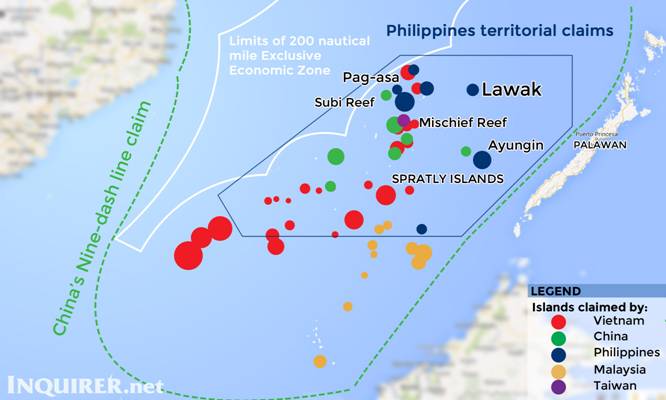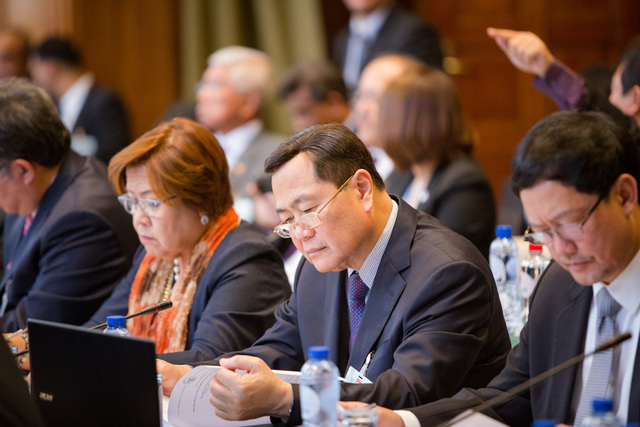
Chinese President Hu Jintao urging his Military to prepare for a war
Chinese President Hu Jintao on Tuesday (December 6, 2011) urged the Chinese navy to prepare for military combat, amid growing regional tensions over maritime disputes and a US campaign to assert itself as a Pacific power.
The navy should "accelerate its transformation and modernization in a sturdy way, and make extended preparations for military combat in order to make greater contributions to safeguard national security," he said.
Addressing the powerful Central Military Commission, Hu said: "Our work must closely encircle the main theme of national defense and military building."
His comments, which were posted in a statement on a government website, come as the United States and Beijing's neighbors have expressed concerns over its naval ambitions, particularly in the West Philippines Sea (South China Sea).
Several Asian nations have competing claims over parts of the West Philippines Sea (South China Sea), believed to encompass huge oil and gas reserves, while China claims it all. One-third of global seaborne trade passes through the region.
Vietnam and the Philippines have accused Chinese forces of increasing aggression there.
In a translation of Hu's comments, the official Xinhua news agency quoted the president as saying China's navy should "make extended preparations for warfare."
The Pentagon however downplayed Hu's speech, saying that Beijing had the right to develop its military, although it should do so transparently.
"They have a right to develop military capabilities and to plan, just as we do," said Pentagon spokesman George Little, but he added, "We have repeatedly called for transparency from the Chinese and that's part of the relationship we're continuing to build with the Chinese military."
"Nobody's looking for a scrap here," insisted another spokesman, Admiral John Kirby.
"Certainly we wouldn't begrudge any other nation the opportunity, the right to develop naval forces to be ready.
"Our naval forces are ready and they'll stay ready."
State Department spokesman Mark Toner said: "We want to see stronger military-to-military ties with China and we want to see greater transparency. That helps answer questions we might have about Chinese intentions."
Hu's announcement comes in the wake of trips to Asia by several senior US officials, including President Barack Obama, Defense Secretary Leon Panetta and Secretary of State Hillary Clinton.
US undersecretary of defense Michelle Flournoy is due to meet in Beijing with her Chinese counterparts on Wednesday for military-to-military talks.
Chinese Premier Wen Jiabao last month warned against interference by "external forces" in regional territorial disputes including those in the West Philippines Sea (South China Sea).
And China said late last month it would conduct naval exercises in the Pacific Ocean, after Obama, who has dubbed himself America's first Pacific president, said the US would deploy up to 2,500 Marines to Australia.
China's People's Liberation Army, the largest military in the world, is primarily a land force, but its navy is playing an increasingly important role as Beijing grows more assertive about its territorial claims.
Earlier this year, the Pentagon warned that Beijing was increasingly focused on its naval power and had invested in high-tech weaponry that would extend its reach in the Pacific and beyond.
China's first aircraft carrier began its second sea trial last week after undergoing refurbishments and testing, the government said.
The 300-meter (990-foot) ship, a refitted former Soviet carrier, underwent five days of trials in August that sparked international concern about China's widening naval reach.
Beijing only confirmed this year that it was revamping the old Soviet ship and has repeatedly insisted that the carrier poses no threat to its neighbors and will be used mainly for training and research purposes.
But the August sea trials were met with concern from regional powers including Japan and the United States, which called on Beijing to explain why it needs an aircraft carrier.
China, which publicly announced around 50 separate naval exercises in the seas off its coast over the past two years — usually after the event — says its military is only focused on defending the country's territory.
China's will start drilling for Oil in Spratlys December 2011 or January 2012

China is targeting to drill for oil in the Spratlys near the main island of Palawan Province, Philippines
Chinese offshore oil and gas specialist CNOOC Ltd will drill its first deepsea exploration well in a northern area of the West Philippines Sea (South China Sea) in coming weeks, a company official told Reuters news.
The china's president Hu urging for preparation for combat might be in line with their oil exploration in the Spratlys which might result to sparks opposition between claimant countries more particularly the Philippines, Vietnam, Brunei, Malaysia and Indonesia.
Although missing an earlier schedule by nearly half a year, the wildcat, an exploration well drilled in an unproven area, marks the beginning of the company's long-planned foray into the geologically challenging deep waters offshore China.
"981 will start drilling late this month or in January," said a company official, referring to the country's first and only homemade deepsea rig Offshore Oil 981, which is designed to operate at a water depth of 3,000 metres and to drill up to 10,000 metres.
Hong Kong-listed CNOOC and international partners including Canada's Husky Energy Inc and U.S. Company Chevron Corp will step up exploration of the deepsea waters in the South China Sea in coming years, with the first major production from the Liwan gas project operated by Husky.
The companies would mostly drill in the northern part of the West Philippines Sea (South China Sea), industry officials and analysts have said, staying away from politically sensitive waters to the south to avoid territorial rows with neighbors such as Vietnam and the Philippines.
The CNOOC official did not say where the first well would be drilled, but over recent years the offshore major had carried out seismic work in the Qiongdongnan basin and the Pearl River Mouth Basin and identified "big oil and gas structures", Chinese geologists said.
Husky Energy, which struck the sole major deep-sea discovery offshore China in 2006, said in September that its Liwan gas project would begin production in 2014, with daily output to reach 500 million cubic feet in 2015.




































